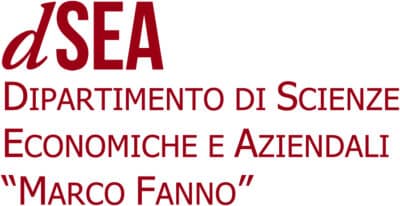
The one-year professional Master in Accounting & Corporate Finance , entirely taught in Italian language, prepares professionals capable of using the competencies and tools of economics and finance to develop technical and managerial skills and improve decision-making and corporate processes.
The course focuses on the increasingly central topics of financial statements, corporate finance and performance audits in corporate decision-making processes. The need to develop and update the related competencies and knowledge is the basis of the educational path.
The purpose of the program is helping attendees acquire such specific competencies and develop relevant tools and concepts for this sector, through the constant alternation of theoretical lessons, practice, case studies and lectures.
The course units of the professional Master in Accounting & Corporate Finance cover the three following thematic areas:
- Financial Statements Area: it covers topics related to how to draft and interpret standard and consolidated financial statements, international accounting principles and risk management.
- Performance Audit Area: it covers topics such as corporate planning analysis, cost analysis, budgeting, transfer pricing and performance analysis multidimensional systems.
- Corporate Finance Area: it analyses topics such as capital budgeting, corporate evaluation, extraordinary growth finance, and also topics related to big data and business analytics.
The Master’s Degree in Accounting & Corporate Finance is addressed to:
- People who already work in the administration, finance and control field, and want to update their knowledge, in order to become “business partners” for the other corporate areas.
- Newly graduates who wish to complement their Bachelor’s Degree by acquiring advanced knowledge.
- Anyone without an accounting or finance background who wants to reposition themselves professionally and develop specific competencies, by mastering the tools and concepts typical of these roles.
The Master trains the following professional figures: junior and senior controllers; administrative directors; corporate consultants; performance audit managers; CFO.
The Master’s Degree in Accounting & Corporate Finance provides training on:
ACCOUNTING COURSE
Before the start of the lessons, there will be a 16-hour Accounting Course, mandatory for anyone without a BA in the field of Economics, or at least 2 years of work experience in the administrative/finance sector.
FINANCIAL STATEMENTS
It covers the financial statement drafting logic, with focus on the income statement, balance sheet and financial statement analysis and interpretation techniques.
INVESTMENT ANALYSIS
It analyses the main investment evaluation techniques.
FUNDAMENTALS OF PLANNING AND CONTROL
It describes the techniques to develop contribution margin analysis, product cost calculation, budget planning and variance analysis implementation.
FUNDAMENTALS OF CONTROL, COST ANALYSIS AND BUDGETING
Illustrates techniques for developing contribution margin analysis, calculating product cost, defining budgets, and implementing variance analysis
INTERNATIONAL ACCOUNTING PRINCIPLES
It covers the structure of accounting documents, according to the IFRS principles, and it focuses on the role of the Other Comprehensive Income and on tangible and intangible asset accounting.
COST ANALYSIS AND BUDGETING
It describes the techniques to develop contribution margin analysis, product cost calculation, budget planning and variance analysis implementation.
CONSOLIDATED FINANCIAL STATEMENTS
It covers the topic of group governance and shows how to draft and interpret the consolidated financial statements.
STRATEGIC CONTROL: RESPONSIBILITY, INCENTIVES AND PERFORMANCE
It covers the topic of the organizational structure and the different types of existing organizations, with reference to their design principles and human resource evaluation.
STRATEGIC PLANNING
It covers industrial plan and business plan drafting techniques.
BIG DATA AND BUSINESS ANALYTICS
It covers the topic of how to use big data in order to collect useful information for supporting corporate decisions.
MANAGING THE RELATIONSHIPS WITH BANKS AND CORPORATE RATING OPTIMIZATION
It analyses the set of rules that regulate the credit business, and it focuses on the techniques that help assess and improve the creditworthiness of a company.
RISK MANAGEMENT AND CORPORATE GOVERNANCE SYSTEMS
It analyses how to identify potential corporate risks and how they are related to performance evaluation.
MULTIDIMENSIONAL PERFORMANCE MEASUREMENT AND ESG REPORTING MODELS
It addresses the topic of multidimensional systems for analyzing company performance and ESG reporting
MODELS AND TOOLS FOR CONTROL AND PLANNING
It illustrates the operational techniques for implementing control and planning tools in the company, also from a consultancy perspective.
CORPORATE ASSESSMENT AND EXTRAORDINARY FINANCE
It covers the topics of corporate assessment, acquisition and merging operations, dividend policies and financial structure choices.
CASH MANAGEMENT
It covers the models and operating tools to create and manage effective cashflow planning systems.
LISTING ON REGULATED MARKETS AND PRIVATE EQUITY
It covers the topics of Venture Capitals and Private Equity, buy-out leverage, corporate listing, and debt offering.
CORPORATE TAXATION
It covers the topic of tax management and accounting.
TRANSFER PRICING
It analyses the role of transfer pricing and the calculation techniques to identify and mitigate possible benefits and risks related to the transfer price policy adopted.
ANTI-LAUNDERING AND FRAUD PREVENTION
It analyses the suitable tools to understand and prevent corporate frauds.
IT LAB activities will include lessons and practice on how to use data structuring, analysis and reporting software to support corporate decision-making processes. The ACF Master’s Degree organizes three workshops:
- a half-day advanced Excel laboratory. During this laboratory, advanced Excel functions for data management and analysis will be explored in depth;
- a half-day laboratory with Tableau. During this laboratory, the use of Tableau software as a business intelligence tool will be illustrated;
- a full day laboratory “Business Game”: a training tool used in the managerial field to allow students to experience first-hand the economic and financial implications of business choices.
All workshops are optional, and will be held at the IT Lab of the Department of Economics and Management “M. Fanno”, Via Bassi 1, Padua.
Below, some of the professors of the Master’s Degree in Accounting & Corporate Finance describe the content of their courses. Dive for a few minutes into the educational experience of our Master’s Course!
Giacomo Boesso, full professor of Business administration.
Fabio Buttignon, full professor of Corporate finance.
Diego Campagnolo, associate professor of Business organization.
Fabrizio Cerbioni, full professor of Business administration.
Marco Ciabattoni, chartered accountant and statutory auditor.
Eugenio Comuzzi, full professor of Business administration.
Antonio Costantini, ricercatore of Business administration.
Francis De Zanche, partner of Adacta Advisory.
Michele Fabrizi, associate professor of Corporate finance.
Marco Fasan, associate professor of Business administration.
Elena Gaiani, business consultant at Strategya.
Paolo Gubitta, full professor of Business organization.
Tommaso Lazzarini, business consultant at Adacta Advisory.
Giovanna Michelon, professor of Accounting.
Giulia Milan, partner at Buttignon Zotti Milan & Co.
Marco Minozzi, business consultant at Strategya.
Francesco Naccarato, partner at 110 Advisory.
Alessandra Nicastro, business consultant at Adacta Advisory.
Antonio Parbonetti, full professor of Business administration.
Sonia Parolin, business consultant Adacta Advisory.
Emilio Passetti, associate professor of Business administration.
Luisa Pastega, chartered accountant and business consultant.
Michele Piazza, partner at Strategya.
Gaetano Terrin, partner at Studio Terrin & Associati.
Anna Trentin, Company Consultant for Adacta Advisor.
Daniele Vanin, accountant and auditor, Consimp Partner.
Matteo Zingales, chartered accountant and statutory auditor.
The general ranking of merit for the academic year 2025/26 will be published on the Italian page of this Master according to the timing provided in the Call.
Single course
Information
FAQ
The ACF Master is a Level 1 course, therefore it can be accessed with a Bachelor’s Degree in any major. However, if you don’t have the admission requirements, you can still attend the Master’s Course as listener.
Not at all. Students from any majors can enrol in this Master’s Degree.
Lessons are provided in dual mode (in-person and on the Zoom platform) and a 70% attendance is mandatory, including three weekends per month, on Friday (8 hours) and Saturday morning (4 hours), for a total of 12 hours a week.
The traineeship is not mandatory to obtain the diploma; however, within the Master’s course, it is possible to complete an optional traineeship aimed at drafting the final project work.
You need to wait for the publication of the admission notice in June, and follow all the instructions to pre-register to the course.

